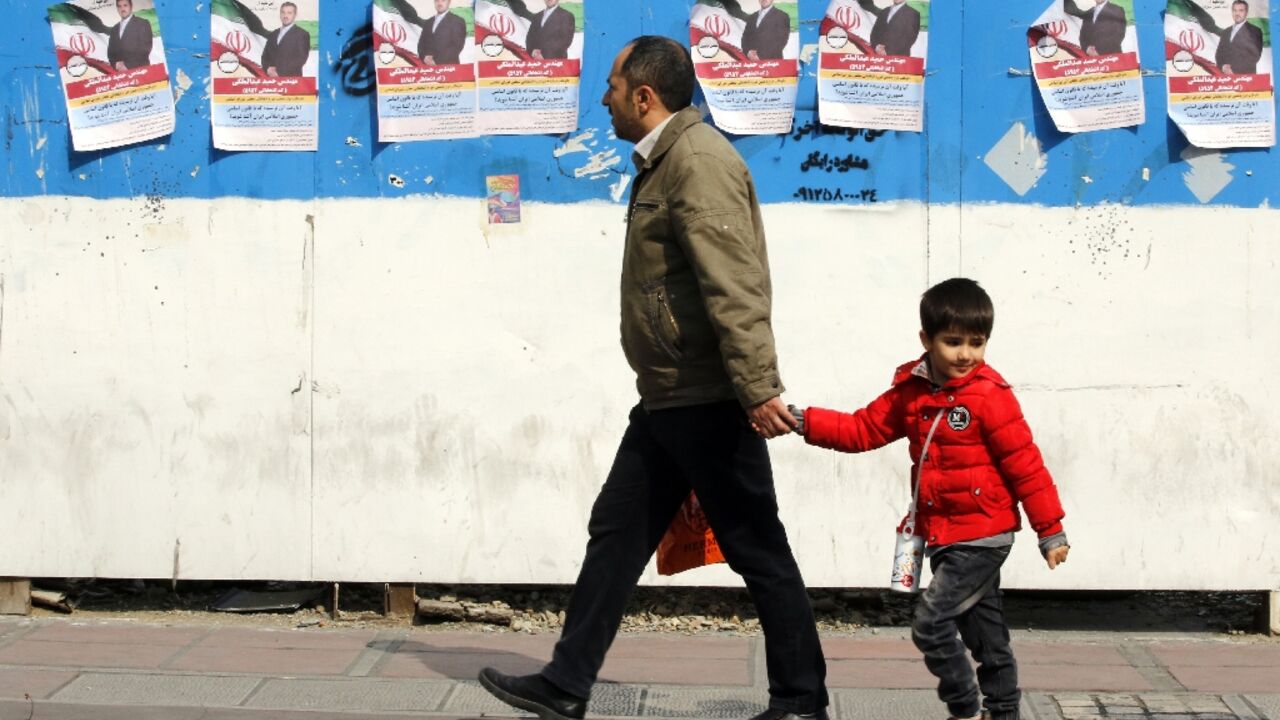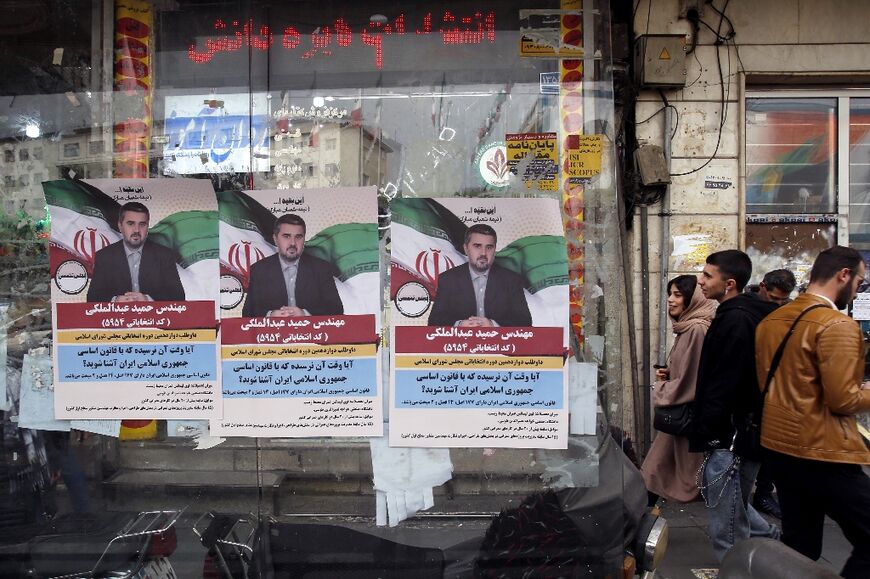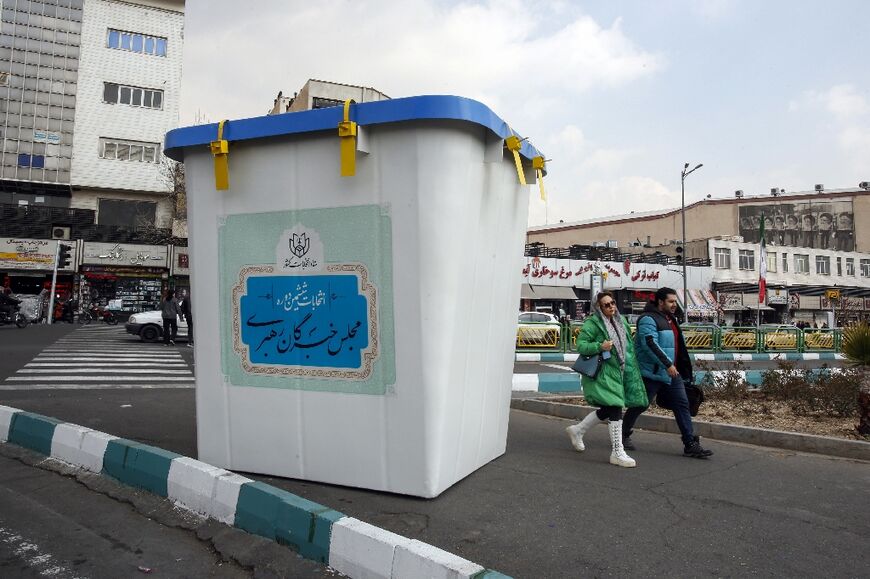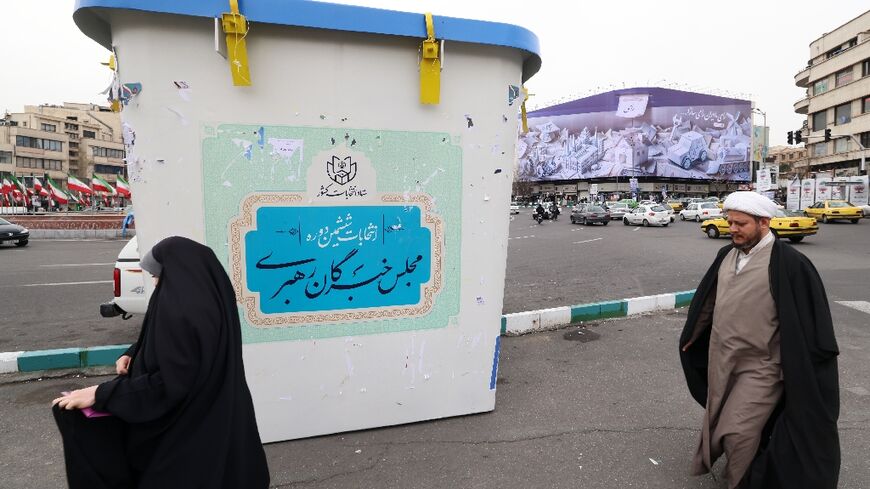Campaigning begins for Iran's legislative election

Candidates running for seats in Iran's legislature launched Thursday their election campaigns, one week ahead of polls expected to tighten conservatives' grip on power.
Voters are due to cast their ballots on March 1 to pick new members of Iran's parliament, as well as the Assembly of Experts, a key body in charge of appointing the country's supreme leader.
The upcoming election will be the first since months-long nationwide protests rocked Iran following the September 2022 death in police custody of Mahsa Amini, a 22-year-old Iranian Kurd.
She had been arrested earlier for allegedly violating the Islamic republic's strict dress code for women.
Large billboards and election posters have sprung up in Tehran and other cities to announce the start of campaigning, urging people to take part.
But the first official day of campaigning on Thursday did not see a large number of banners erected in favour of individual candidates or their coalitions.
Iran's supreme leader Ayatollah Ali Khamenei has urged people to head to the polling stations.
"Everyone should participate in elections," he said on Sunday. "It is important to choose the best person, but the priority is for people to participate."
Some 15,200 candidates have been approved by jurists in charge of the vetting process to compete for the legislature's 290 seats, according to the official IRNA news agency, a record figure since the 1979 Islamic revolution.
- Calls for participation -
"Most of the candidates, particularly in small constituencies, are doctors, engineers, civil servants, and teachers who are not affiliated with any political group," journalist Maziar Khosravi told AFP.
By allowing such a large pool of candidates to run, the government "wants to create local competition and increase participation" to help attract voters, he added.
Only between 20 and 30 of the reformist candidates who submitted applications have been approved to run in the upcoming election, reformist politicians said.
Iran's current parliament, elected in 2020, has been dominated by conservatives and ultra-conservatives after many reformists and moderates were disqualified.
The country at the time saw a voter turnout of 42.57 percent -- the lowest since the Islamic revolution.
President Ebrahim Raisi has similarly urged people to cast their ballots on March 1.
A recent poll conducted by Iran's state television found that more than half of the respondents were indifferent to the elections.
On Monday, former reformist president Mohammad Khatami said Iran was "very far from free, participatory, and competitive elections".
He pointed to growing popular "discontent" among Iranians.
Iran has been reeling under crippling US sanctions since Washington's unilateral withdrawal in 2018 from a landmark nuclear deal.
Inflation in the country has in recent years hovered near 50 percent while the local currency has plummeted against the dollar.
- 'Meaningless elections' -
Former moderate president Hassan Rouhani has called on the people to vote "to protest against the ruling minority".
Rouhani recently announced that he was barred from seeking re-election to the Assembly of Experts after 24 years of membership.
The 88-member Assembly is tasked with electing, supervising and, if necessary, dismissing the supreme leader, who has the final say in all matters of state in Iran.
The Reform Front, a key coalition of reformist parties, has meanwhile said it will not take part in "meaningless, non-competitive, and ineffective elections".
Some opposition figures in Iran and members of the diaspora have in recent weeks called for a total boycott of the polls.
In the absence of serious competition from reformists and moderates, the journalist Khosravi expected the new parliament would likely continue to be controlled by conservatives.
He nonetheless predicted that current MPs would not be re-elected for a new term, especially as "economic conditions have made people unhappy with the current representatives."
Despite the absence of challengers to the conservatives, "the battle is expected to be serious and bloody," said Khosravi.







